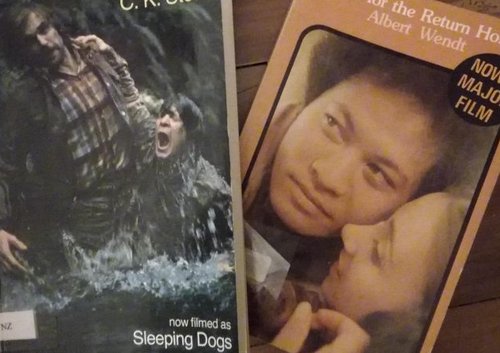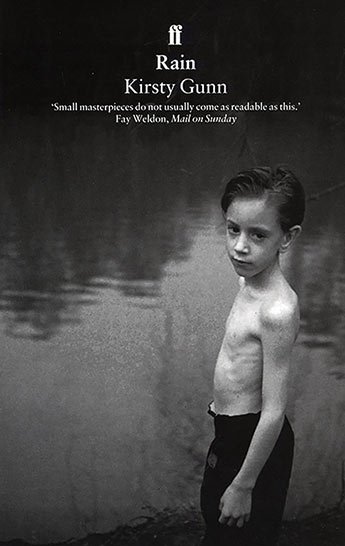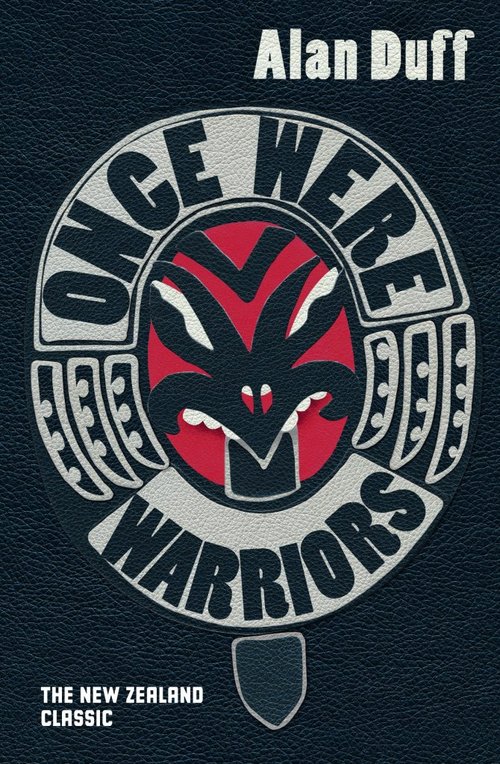
In New Zealand, plenty of screen stories have come from written works as book-to-film adaptations.
The following list of adapted works is incomplete but provides some information about each one. If you’ve seen the movie, maybe you could read the book? Or if you liked the book, how about seeing the movie? Let us know which you think is better.
Hawera author Ronald Hugh Morrieson’s writing was not especially successful during his life, but many of his works have been posthumously adapted for the screen. Parts of his writing and life were fictionalised in the 1982 television film One of Those Blighters. This was followed that same year by the feature The Scarecrow, based on his 1963 novel of murder in a small town. Directed by Sam Pillsbury, it was the first New Zealand film selected for the Director’s Fortnight section of the Cannes Film Festival.
Came a Hot Friday was released in 1985 and was based on the 1964 book. The film became one of the most successful and beloved New Zealand films of the 1980s and swept the Film and Television Awards the following year. The tale of two conmen also features a memorable performance from Billy T. James as The Tainuia Kid.
Pallet on the Floor hit cinemas in 1986 on a limited theatre release, three years after it was filmed. It was directed by Lynton Butler, who’d earlier helmed One of Those Blighters.
Morrieson’s 1975 novel Predicament was the last of his works to be released as a film. The 2010 flick focuses on a trio of blackmailers and starred Jermaine Clement and Heath Franklin.
1977’s Sleeping Dogs was a Roger Donaldson-directed adaptation of CK Stead’s Smith’s Dream which had been released in 1971. The film was a breakout role for Sam Neill and the first feature film from Donaldson. A commercial and critical success, the seemingly unthinkable scenes of civil unrest in New Zealand were mirrored a few years later during the 1981 Springbok Tour – itself vividly captured in PATU!
Albert Wendt ONZ, is another author who has had multiple works adapted. One of his earliest works, Sons for the Return Home from 1973 is the tale of the relationship between a Samoan boy and Palagi girl. It was adapted and directed by Paul Maunder in 1979 and was praised by The Listener as ‘an important film’. Uelese Petaia who played Sione would later star in Tusi Tamasese’s One Thousand Ropes.
Two of Wendt’s short stories were adapted into the 1990 film Flying Fox in a Freedom Tree, directed by actor and writer Martyn Sanderson. Set in Samoa, it follows a teenager who rejects Christianity and gathers disciples. The lead is Faifua Amiga, who had previously starred in Kingpin and Mark II.
Rain was Kirsty Gunn’s 1994 debut novel and was adapted and directed by Christine Jeffs for her feature debut in 2001. Set during a beachside holiday in the 1970s, the film tells the story of 13-year-old Janey trying to make sense of her parent’s impending split and her transition to womanhood.

Rain by Kirsty Gunn
Maurice Gee’s In My Father’s Den from 1972 was adapted to the screen for the 2004 feature of the same name. Starring Matthew MacFayden and Emily Barclay, the film was adapted and directed by Brad McGann to critical success. Three years later, McGann died from cancer, aged 43.
The Quiet Earth was written by Craig Harrison and released in 1981. Four years later the Geoff Murphy-directed feature would become a classic part of New Zealand science fiction cinema. Bruno Lawrence, Alison Routledge and Pete Smith starred in the cult film – considered to be one of the best sci-fi flicks of the decade.
Murray Ball’s much loved cartoon strip Footrot Flats was adapted by Ball and Tom Scott into the country’s first animated feature in 1986. A critical and commercial smash, the film brought together many big names, including John Clarke, Fiona Samuel, Billy T. James, Dave Dobbyn and Herbs.
Mike Riddell wrote The Insatiable Moon in 1997 and would later serve as producer and writer on the feature film directed by wife Rosemary Riddell. Rawiri Paratene stars as a man who may be able to talk to God – and has a following of boarding house residents.
Published in 1987, Witi Ihimaera’s much-loved Whale Rider is a take on the story of the descendants of Kahutia Te Rangi, the whale rider. Adapted by director Niki Caro, the 2002 film features Keisha Castle-Hughes in the lead role, this time known as Paikea. One of the most successful New Zealand films, Whale Rider swept the 2003 NZ Film Awards.
Janet Frame’s trilogy of autobiographies were adapted by director Jane Campion and screenwriter Laura Jones into the 1990 telemovie An Angel at My Table. Following critical acclaim, An Angel received an international cinema release and won rave reviews. In the film, Frame was portrayed as a child by Alexia Keogh and as an adult by Kerry Fox.
Alan Duff released his first novel, Once Were Warriors, in 1990 to widespread acclaim. Four years later it was adapted by Riwia Brown for the Lee Tamahori-directed feature of the same name. One of the country’s most successful films of the 1990s, Warriors helped launch the career of Rena Owen and showed Temuera Morrison – familiar as Shortland Street’s Dr Ropata – in a whole new light.
Hero image: Smith’s Dream (adapted for the screen as Sleeping Dogs) and Sons for the Return Home.
